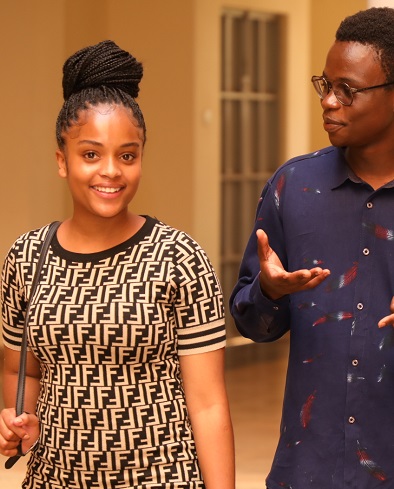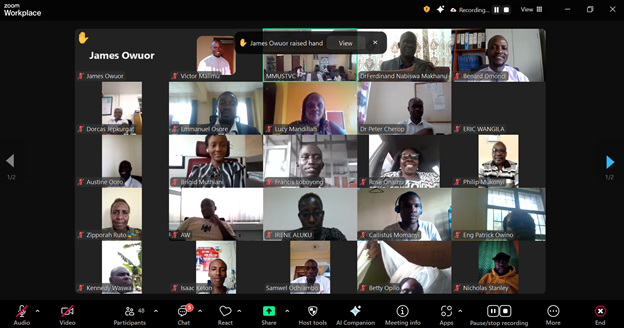The Director of IIKCSCC, Prof. Josephine Ngaira emphasized the Institute’s objective of providing a platform for researchers to explore the value of indigenous knowledge. She highlighted that indigenous knowledge provides problem-solving strategies tailored to local communities and promotes sustainable, community-centered approaches that consider environmental conservation and future generations.
“Indigenous knowledge practices emphasize community-centered approaches and sustainability of the environment that caters for future generations while ensuring long-term balancing of society,” said Prof. Ngaira.
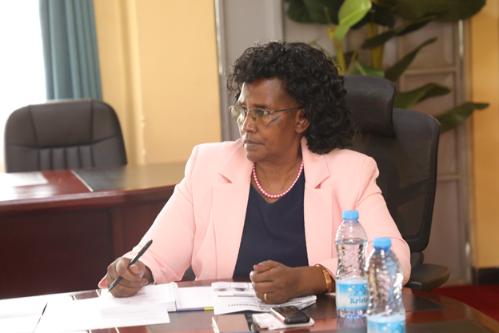
The Director of IIKCSCC, Prof. Josephine Ngaira keenly follows the presentations.
Representing the Ag. DVC Planning, Research, and Innovation, Dr. Collins Matemba pointed out the significance of integrating indigenous knowledge into curricula and policy frameworks to promote sustainability. He stressed that a blend of modern and indigenous methodologies would enrich engineering practices and foster long-term solutions.
Similarly, Prof. Eng. Bernadette Sabuni noted that even with advancements in engineering, we still borrow from our indigenous knowledge. She emphasized that engineering plays a critical role in building a sustainable world by integrating modern innovations with traditional wisdom to create efficient, eco-friendly, and resilient solutions.
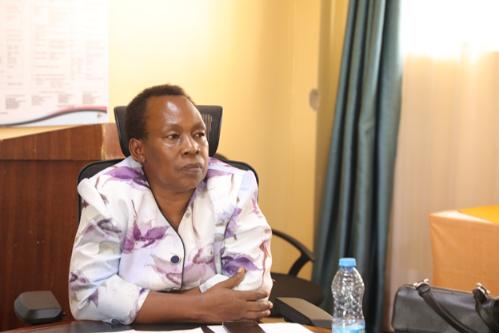
The Dean SEBE, Prof. Eng. Bernadette Sabuni at the event.
Prof. Josephine Ngaira and Dr. James Owuor presented a paper on ‘Lightning: Myths and Realities,’ addressing common misconceptions and scientific perspectives on lightning. During the presentation, Dr. Owuor revealed that lightning has an element of power and that it is viewed as a manifestation of power in various cultures including African, European and Asian. He demonstrated to participants how lightning occurs, cautioning that unfinished buildings are very dangerous shelters.
Dr. Wamalwa Mukoche delivered a presentation titled ‘Sparing Local Industrialization through Transformation of Indigenous Technological Capabilities.’ He pointed out that academia has a role to play in preserving indigenous knowledge, adding that the United Nations Commission for Human Rights has enshrined indigenous practices as important rights of communities. His paper revealed that indigenous knowledge is often misunderstood or dismissed as primitive by foreign cultures, yet it holds substantial technological and industrial potential.
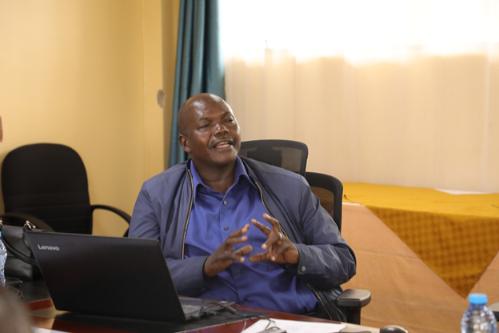
Dr. Wamalwa Mukoche delivers a presentation during the webinar.
The final presentation was from a Lecturer- Department of Mechanical and Industrial Engineering, Dr. Emmanuel Osore, ‘Integrating Indigenous Renewable Energy Practices into Contemporary Sustainable Solutions; Lessons from Wind, Solar and Hydro Systems’. In his presentation, Dr. Osore explored the possibility of productive utilization of indigenous knowledge to harness wind, solar and hydro energy. Appreciating the foundation laid by indigenous knowledge for the current technology that is being experienced in the modern world, Dr. Osore urged participants to embrace indigenous knowledge and tap into its endless possibilities.
“In meteorology, we have seen that as much as we have the advancements we still need indigenous knowledge to make accurate deductions or forecasts about the weather. In fact, traditional rainmakers’ thoughts are usually incorporated in such forecasts. But there are challenges hindering utilization of indigenous knowledge in this sector, including lack of commitment by policy makers and failure to document knowledge, therefore missing out on the intellectual property ownership of such knowledge.,” remarked Dr. Osore.
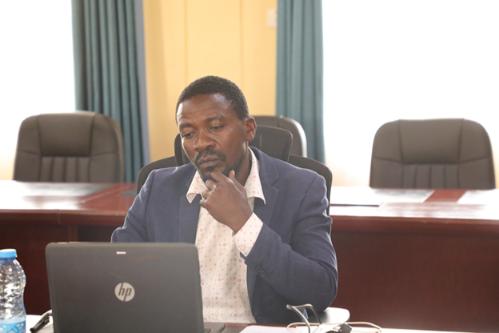
Lecturer- Department of Mechanical and Industrial Engineering, Dr. Emmanuel Osore following the presentations.
Indeed, academia can play a crucial role in preserving and advancing indigenous knowledge. This Webinar is one of the methods of ensuring its recognition and integration into modern technological advancements. Let us embrace our heritage for sustainable solutions to the problems facing the world today.


